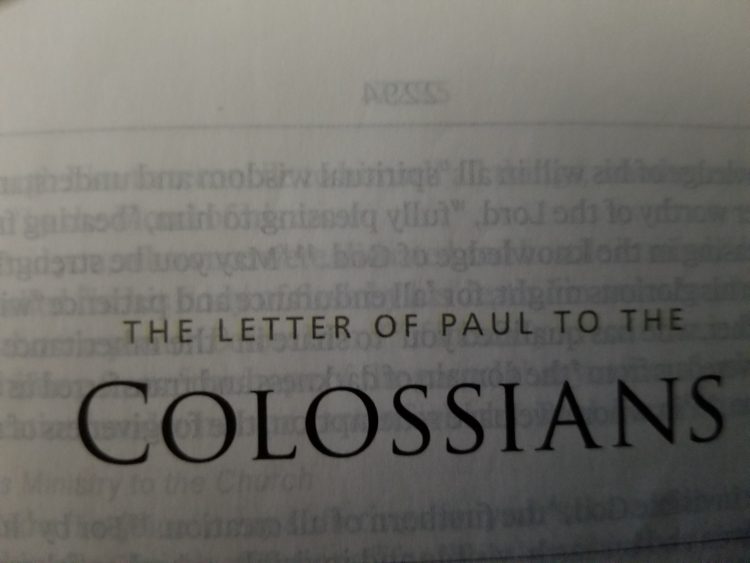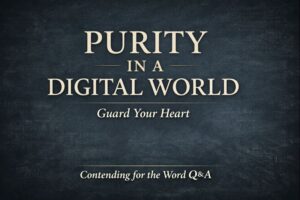⏱️ Estimated Reading Time: 6 min read
Colossians 1:1-5, “Paul, an apostle of Christ Jesus by the will of God, and Timothy our brother, 2 To the saints and faithful brothers in Christ at Colossae: Grace to you and peace from God our Father. 3 We always thank God, the Father of our Lord Jesus Christ, when we pray for you, 4 since we heard of your faith in Christ Jesus and of the love that you have for all the saints, 5 because of the hope laid up for you in heaven. Of this you have heard before in the word of the truth, the gospel,”
Paul wrote Colossians to the churches in Colossae while he was in prison in Rome likely around 62 A.D. This letter was penned around the same time as Philemon and Ephesians. Tychicus and Onesimus delivered all three of these letters (Ephesians 6:21). Colossians emphasizes the supremacy of the Christ so clearly in this epistle that there can be no denying the central place Jesus holds in Christian orthodoxy. Colossians begins with a greeting (vv.1-2), then with his thanksgiving to God for their faith and love (vv. 3–4).
We might quickly read over Colossians 1:3-5 never giving these verses a second thought, but doing so would cause us to miss a significant theological lesson. Paul is genuinely thankful to the Lord for how He is working faith and love, both of which are evidence or gifts of His grace. Only the Lord can grant faith which reveals itself as it works through love (Galatians 5:6), to human beings if they are saved. Salvation is all of the Lord from beginning to end. And this truth also drives those of us who love Christ to thank God for His sovereign grace. The Reformation Study Bible beautifully captures this point when it says, “Faith, hope, and love, are central to Paul’s understanding of the Christian life (Rom. 5:2–5; 1 Cor. 13:13; Gal. 5:5, 6; 1 Thess. 1:3; 5:8; cf. Heb. 10:22–24). He treats them as gifts of God rather than as virtues produced by the believers themselves. Paul emphasizes the sovereignty of God in salvation and the believers’ security in their relationship with Christ (Eph. 1:4; 2:8).”[i]
In Colossians 1:5 Paul says our “hope” is “laid up for you in heaven.” While hope is the ground of faith and love, it is also the source from which they spring and are sustained by the Holy Spirit’s power (Colossians 1:5). Such hope is not wishy-washy subjective experience, but the present reality of what will be experienced in its fullness in the future. Knowing this reality grounds Christians not in their feelings, which may sway like the grass in the fields, but in the fullness of salvation in the age to come and in how our faith and love are sustained by Christ in the present.
While it may be easy to read our subjective feelings into Scripture, the apostles often referred to Christian hope in the New Testament to ground our hope in the new life and reality that He provides His beloved through the new birth. To hope in God means our lives are grounded in the sure and steady promises of Christ as revealed in the Word of God.
Colossians 1:5-8, “5 because of the hope laid up for you in heaven. Of this you have heard before in the word of the truth, the gospel, 6 which has come to you, as indeed in the whole world it is bearing fruit and increasing—as it also does among you, since the day you heard it and understood the grace of God in truth, 7 just as you learned it from Epaphras our beloved fellow servant. He is a faithful minister of Christ on your behalf 8 and has made known to us your love in the Spirit.”
Heresies are always grounded in the same kind of assumptions basic to all false teaching. Islam insists that Jesus is only a prophet and Mormonism contends that Jesus is just a man who has achieved the exalted status of godhood. Both of these claims are based on the idea that Jesus is not who He said He was in the New Testament, namely, fully God, fully man, who became incarnate to redeem sinners (John 8:58; 2 Peter 1:1).
Most often heresies are rooted in the idea that since the Bible is an insufficient revelation, we need more from God to know Him fully. This further revelation exists in a written form today in the form of books like the Qur’an of Islam among others. In other instances, it is the secret knowledge of the Gnostics, known only to a select group of extraordinary people. The Colossians were plagued by gnostics, those who claimed secret knowledge which is why Paul in Colossians 1:5-8 asserts the true gospel had come before the arrival of the false teachers. He further insists that Epaphras brought the true gospel to the city, as a servant of the truth faithfully to proclaim what was revealed in the Scriptures which testify to the Lord Jesus.
The Scriptures don’t say much about Epaphras except that he was a co-laborer of Paul’s. Epaphras’ faithful proclamation of the gospel leads Paul to tell the Colossians about the “word of truth” in Colossians 1:5. The Scriptures are the whole truth but not only are they the truth to be heard and received, but they also testify to the person and work of Jesus. The grace of God not only saves it also transforms, and that is Paul’s point, in verses 6-8, namely the transformative effect of the preaching of the gospel of God’s grace. On this point, New Testament, Dr. Doug Moo explains, “The gospel is authenticated not by its truth only nor by its power in people’s lives only but by both working in tandem.”[ii]
The Christian life as Luther taught in his first point in the 95 theses is repentance, or as Martyn Lloyd-Jones taught, the grace of God is the beginning, middle, and end and everywhere in-between of the Christian Life. Adding to this, J.C. Ryle once said, the gospel is the ABC’s of the Christian life. More recently author, Dr. Tim Keller who says that gospel is the A to Z of the Christian life. Wherever we are at in the Christian life today, as God’s people, His Beloved, may the word of truth, be heard and received with gladness, so that we may become daily more like Christ in all of life.
[i] Sproul, R. C. (Ed.). (2005). The Reformation Study Bible: English Standard Version (p. 1728). Orlando, FL; Lake Mary, FL: Ligonier Ministries.
[ii] Doug, Moo, The Letters to the Colossians and to Philemon, p. 89



